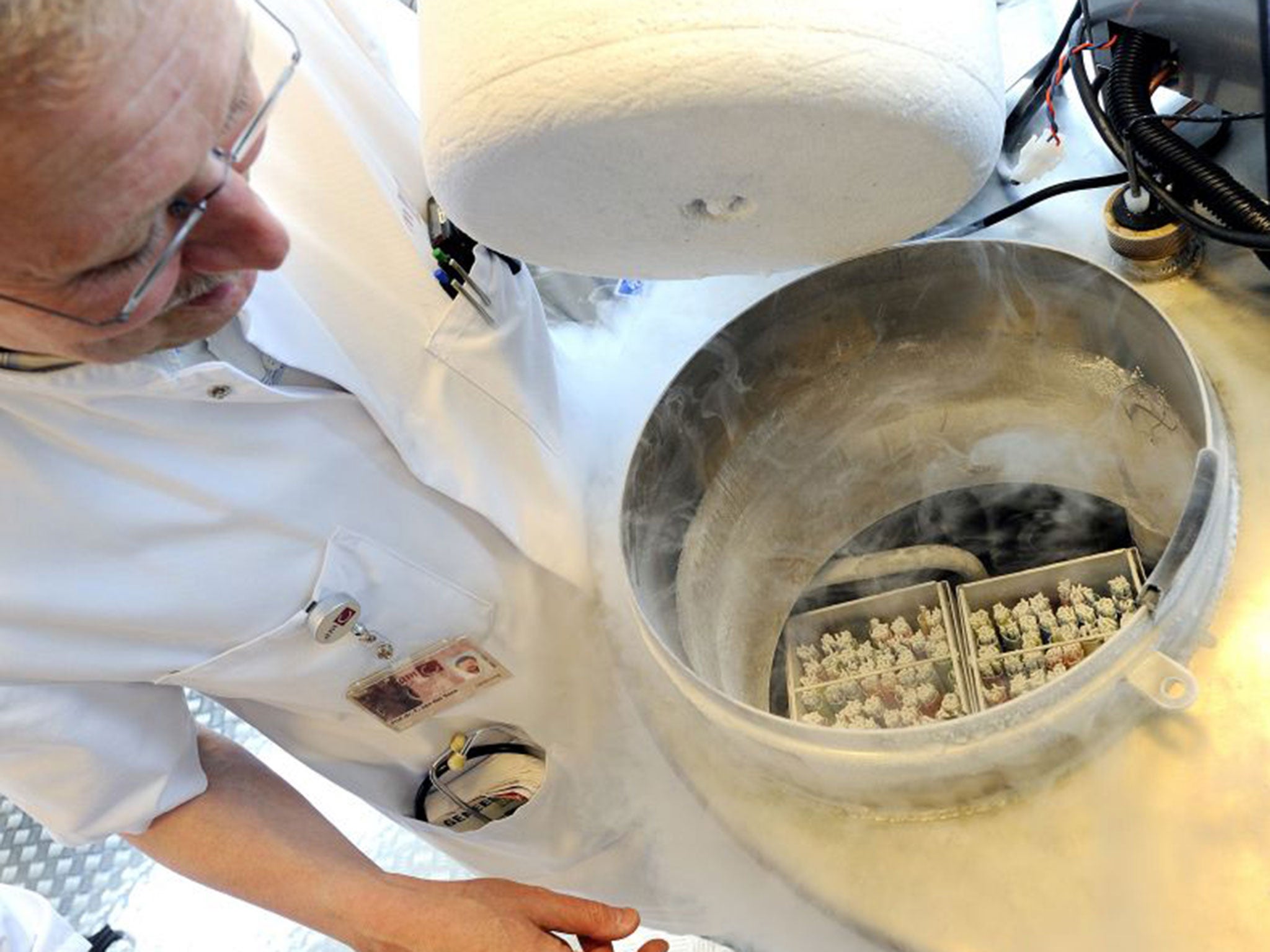Women should be urged to 'freeze their eggs by 35' and give birth by 38, according to new study
Women could have been misled by ‘good news stories about celebrities’ fertility experts warned

Your support helps us to tell the story
From reproductive rights to climate change to Big Tech, The Independent is on the ground when the story is developing. Whether it's investigating the financials of Elon Musk's pro-Trump PAC or producing our latest documentary, 'The A Word', which shines a light on the American women fighting for reproductive rights, we know how important it is to parse out the facts from the messaging.
At such a critical moment in US history, we need reporters on the ground. Your donation allows us to keep sending journalists to speak to both sides of the story.
The Independent is trusted by Americans across the entire political spectrum. And unlike many other quality news outlets, we choose not to lock Americans out of our reporting and analysis with paywalls. We believe quality journalism should be available to everyone, paid for by those who can afford it.
Your support makes all the difference.Women should be urged to freeze their eggs by the age of 35 and start families earlier, as their chances of giving birth “decrease significantly” after they turn 38, according to a new study.
Lead researcher Dr Marta Devesa, presenting her report at the European Society of Human Reproduction’s annual conference in Lisbon, said that while women should be urged to freeze their eggs, women over the age of 44 should not use their own eggs in IVF treatment.
“There is a clinically relevant decline from 41/42 – but the prognosis is really futile from 44 onwards.
“Women should be encouraged to have families earlier but if you can't change society then we should encourage them to freeze their eggs by 35.
“Indeed, women of 44 or older should be fully informed about their real chances of a live birth and counselled in favour of oocyte (immature egg) donation,” she said.
The study analysed nearly 4200 women aged between 38 and 44 who underwent 5,841 IVF cycles.
Birth rates shown to fall from 24 per cent for those aged 38 and 39 to 15 per cent for 40 and 41-year-olds, 6.6 per cent for women aged 42 and 43 and just 1.3 per cent for those 44 and older.
Fertility experts said the study showed that women need to be better informed about fertility and had perhaps been misled by “good news stories about celebrities”.
Professor Adam Balen, the chairman of the British Fertility Society and a consultant in Leeds, told the Daily Telegraph: “While you hear lots of good news stories about celebrities who may have given birth at an older age, nobody knows the number of celebrities who may not have been able to have babies, either because of infertility or possibly even having had fertility treatment that has been unsuccessful.
“There is always a strong possibility that many of these celebrities may well have sought the assistance of a fertility clinic and may have conceived wither with IVF or donor eggs.”
Additional reporting by PA
Join our commenting forum
Join thought-provoking conversations, follow other Independent readers and see their replies
Comments